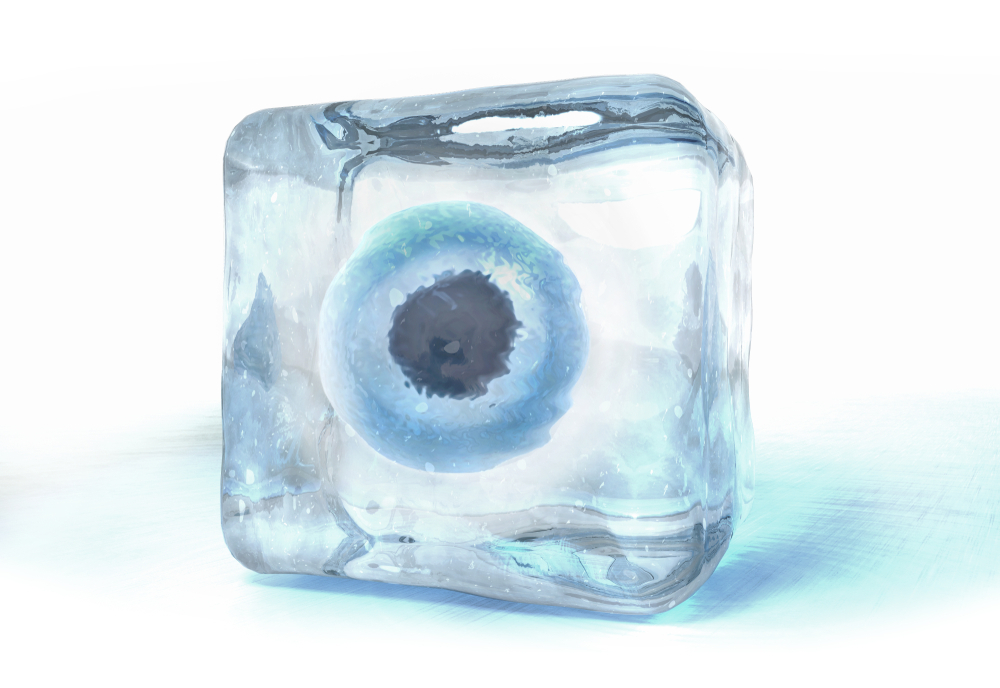In this video I describe what most recipients are looking for in their egg donors, as well as some unusual requests.
Read More
In this video I describe what most recipients are looking for in their egg donors, as well as some unusual requests.
Read More
How do you trust a person you will never meet to contribute half the genetics of your child? Kathy Benardo explains how donors are evaluated and what motivates them to be compliant.
Read More

Are frozen donor eggs just as good as fresh? I get this question all the time. Actually, there is no right answer: it all depends on your own particular needs and desires.
Before you begin looking for a donor (fresh or frozen), my advice is to prioritize these major factors:
Cost: are your funds very limited, or do you have some flexibility?
Time: are you on a deadline (for insurance, your clinic’s age cut off, or some other reason)?
Selection: are you looking for a particular ethnicity, education level, or some other specific quality?
One of these three factors must be number one, and one must be number three. They cannot all be number one!
First, you should have a general understanding of the difference between fresh and frozen eggs. Think of fresh eggs as a product and frozen eggs as a process.
Frozen egg banks recruit, screen and cycle donors “on speculation,” then freeze the eggs in batches of six or so (two or three batches can result from a single retrieval). Since the screening and cycling is already completed, frozen eggs are the faster option, available to ship to your clinic right away to thaw, fertilize and transfer whenever you want.
Frozen egg banks compensate donors on the lower end of the scale, starting around $5,000. Because the retrieval results are divided and donors are paid less, frozen eggs are less expensive than fresh.
Read More
In order to choose an IVF clinic for an egg donation, there are three factors you must prioritize, and be aware of your clinic’s statistics. Kathy Benardo gives some tips.
Read More
Kathy Benardo explains how egg donors are screened for nicotine and other substances and how clinics evaluate past drug use.
Read More
It is fine to be on most forms of birth control when applying to be a donor. Some forms will eventually need to be removed when you start the process, but you can apply any time.
Read More
We all know that egg donors need to be in excellent health, and you can be healthy with an extra 5 or 10 pounds on your frame. But will it disqualify you as a donor? Kathy Benardo explains in this YouTube video.
Read More

About 10,000 babies are born every year via egg donation: a process in which a woman agrees (typically for a fee) to have her eggs retrieved and used by another family to conceive a child. Some hopeful parents (“recipients”) choose known donors, that is, family members or friends to serve as their donors. But the vast majority are unknown, found through donor pools at IVF clinics, independent agencies, or frozen egg banks.
For medical purposes, doctors and the FDA make clear black-and-white distinctions between known and unknown donors. But the growing reality among recipients and donors is that “known” has many shades of gray.
Twenty or so years ago when clinics were the only source for egg donors, complete mutual anonymity between donors and recipients was the standard. Anonymity was one of the factors that allowed egg donation, then still new and unfamiliar, to flourish in the US. [In countries where anonymity is not allowed (such as Great Britain), egg donation is very limited (compensation is restricted there, too).] Guaranteed privacy and confidentiality encouraged women to participate.
Basic medical information was presented to recipients, but not current photos. Photos were off limits not only because they could theoretically breach confidentiality, but they could also “irrationally” sway the recipients’ preferences beyond the criterion of medical eligibility, the primary concern of their doctors. From a clinical point of view, any kind of openness, even photos, could threaten the whole arrangement. Anonymity kept clinics in control of the process.
Read More
Should you apply to an IVF clinic or an egg donor agency? Kathy Benardo explains the different experiences that clincis and agencies offer.
Read More
Inherited – A disease or characteristic that is transmitted through genes from parents to offspring. Inheritance patterns include the following:
Sources and additional information:
Cancer
Heart
Blood
Respiratory
Gastrointestinal
Metabolic/Endocrine
Urinary
Genital/Reproductive
Reproductive Outcomes
Neurological
Mental Health
Muscle/Bone Joint
Sight/Sound/Smell
Skin
Congenital Abnormalities/Birth Defects
Chromosomal Abnormalities
Genetic History